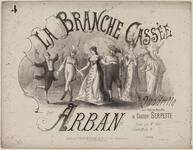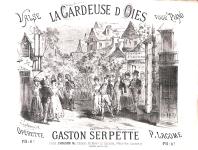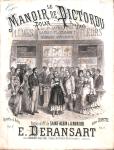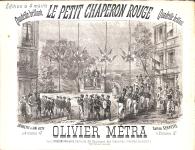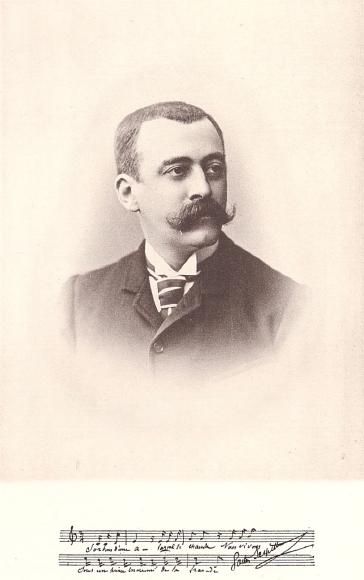
Gaston SERPETTE
1846 - 1904
Composer
Son of an industrialist from Nantes, Gaston Serpette studied law and became a lawyer before turning to music. This change of direction proved very successful: admitted to the Paris Conservatoire to study under Jules Duprato and Ambroise Thomas, Serpette won the Premier Grand Prix de Rome in 1871 with his cantata Jeanne d’Arc, before he had even been awarded a minor prize at the conservatory. To the great regret of his former teachers and the members of the Institut who had given him the prize, he turned away from “serious” genres during his stay at the Villa Medici to devote himself almost exclusively to operetta. His fondness for this genre was to colour the rest of his career: his catalogue includes thirty-one operettas, premiered at the Théâtre des Bouffes-Parisiens, the Théâtre des Variétés or the Théâtre des Nouveautés between 1874 and his death (La Branche cassée, Le Manoir de Pic-Tordu, Le Singe d’une nuit d’été, Les Demoiselles du Téléphone, La Dot de Brigitte, Madame le Diable, Shakespeare, etc.). As well as these productions, he wrote pieces and works for voice and piano which were also hugely successful in their time; particularly La Bouquetière (for which he also wrote the words) in 1877 and La Mort des amants (to a text by Baudelaire) in 1879. Based mainly in Paris, he left the French capital on several occasions: for London, first, where he worked for a time as a conductor; then Algeria, where he became the owner of a vineyard. Gaston Serpette was also a music critic towards the end of his life, reviewing, for example, the premiere of Debussy’s Pelléas et Mélisande for the periodical Gil Blas.

